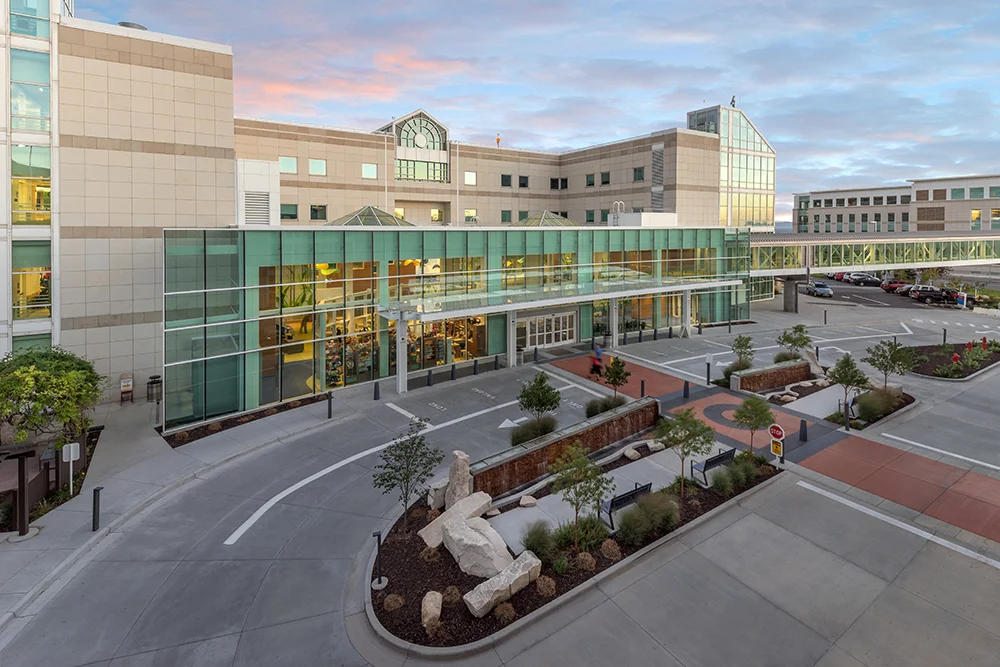By Cristina Hooper
Social Work Crisis Worker
Emergency Department
 Crisis. That is what my job description implies, and that is what every call for service will involve. I am a Social Work Crisis Worker.
Crisis. That is what my job description implies, and that is what every call for service will involve. I am a Social Work Crisis Worker.
Our small team works in the Emergency Department, after hours, weekends, and holidays. Our role is different from what our peer social workers do in many ways. Yet what brings us together with the title of social workers is the desire to help care for patients and their loved ones while they experience a medical need.
When we were in graduate school, no one told us that we would work odd hours and deal with more deaths, suicidal thoughts, and suffering than a person would normally experience in a lifetime. Our training guided us to better understand human behavior in order to care for those in need. But we were not prepared for what we would have to learn for ourselves: how to show a person in crisis that you care within minutes of having met them.
One of the most difficult realities of our jobs is that we only have minutes to respond and build relationships of trust. It’s a short time to do all we can to help, and then as fast as you met us we’re gone to try to help someone else. There is no follow-up, no thank you cards, no good news of things getting better, and no time to truly develop a relationship with the family or patient. Yet we are always there. We help at the moment we are needed the most and give our all.
We are there for people during the worst times of their lives. We see the pain, the relief, the background stories that no one else in the hospital will know about families. We see shock, anxiety, helplessness, and the last moments parents have with their child who is not coming home. I have held many mothers’ hands as they cried alone because they could no longer feel their child’s breath. I have helped families find ways to feed their children one more day. I have participated in helping save countless lives by listening to emotionally devastated teens who share things with me they have never shared with anyone before. And then I have walked away and kept a hope within me that I did truly help them with what they needed … never to hear from them again.
This is a job I love. The best way I have found to describe it to others when they say “I couldn’t do what you do” is that it is my privilege to be there for those in need during the worst times of their lives. And even though our graduate programs require this training, kindness and love are two important things that were not taught in a formal education. Those things come from the individual hearts of social workers when a crisis arises.
About the Author
Share This Article
Search Our Blog
Our Instagram
Recent Posts
- “We Help at the Moment We are Needed the Most”: Reflections of a Crisis Worker March 10, 2016
- 10 Nutrition Rules Every Parent Should Embrace March 4, 2016
- Sandy Pediatric Rehab Team Moves to New Clinic at Riverton Hospital March 1, 2016
- What You Did That Helped Me the Most: A Letter From a Patient to His Mom February 20, 2016
- Love for Heart Patients: Little Hats, Big Hearts February 15, 2016
Our Most Popular Posts
- Sandy Pediatric Rehab Team Moves to New Clinic at Riverton Hospital 5 views
 “It Takes an Army of Heroes . . . ” A Parent’s Perspective on Tragedy 5 views
“It Takes an Army of Heroes . . . ” A Parent’s Perspective on Tragedy 5 views - Bone Fractures: From Break to Cast Removal 5 views
 Ed Clark, MD, Steps Down as Chief Medical Officer of Primary Children’s Hospital 5 views
Ed Clark, MD, Steps Down as Chief Medical Officer of Primary Children’s Hospital 5 views - Dr. Kim to Become South Korea’s first Pediatric Ear, Nose & Throat Doctor 5 views
- What You Did That Helped Me the Most: A Letter From a Patient to His Mom 4 views
 Customized Care Plans for Childhood Cancer Survivors 4 views
Customized Care Plans for Childhood Cancer Survivors 4 views - The Air We Breathe: Protecting Your Kids During an Inversion 3 views
 On Childhood Cancer: Perspectives of a Pediatric Oncologist 3 views
On Childhood Cancer: Perspectives of a Pediatric Oncologist 3 views  McKay’s “Magic Ears”: How Our Audiology Team Helped Him Hear Again 3 views
McKay’s “Magic Ears”: How Our Audiology Team Helped Him Hear Again 3 views
Archives
- March 2016 (3)
- February 2016 (6)
- January 2016 (7)
- December 2015 (5)
- November 2015 (8)
- October 2015 (8)
- September 2015 (2)
- August 2015 (1)
- July 2015 (3)
- June 2015 (2)
- May 2015 (2)
- March 2015 (3)
- February 2015 (2)
- January 2015 (2)
- November 2014 (1)
- October 2014 (1)
- September 2014 (3)
- August 2014 (2)
- July 2014 (4)
- June 2014 (2)
- May 2014 (4)
- April 2014 (6)
- March 2014 (4)
- February 2014 (1)
- September 2013 (1)
- February 2013 (1)
- June 2012 (1)















Add comment